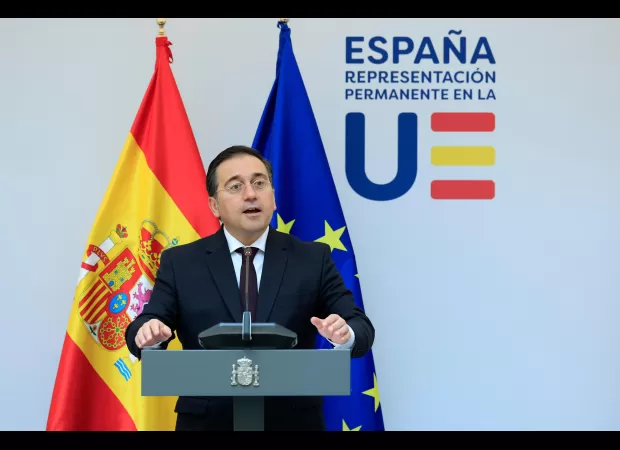EU-Israel relations worsen as Spain, Ireland plan to acknowledge Palestine as a state.
Spain suggests sanctions against Israel for ongoing attacks in Rafah, Gaza.

Spain suggests sanctions against Israel for ongoing attacks in Rafah, Gaza.


